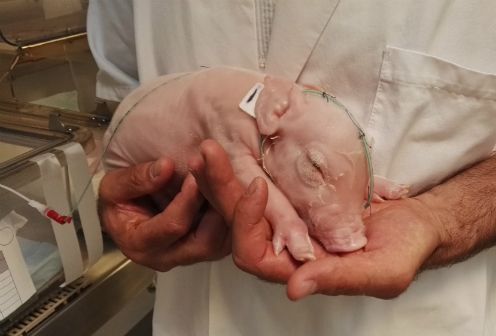A new research project from the University of Copenhagen (KU) has revealed that prematurely born children could be strengthened by ingesting UV-treated milk.
The findings, which showed promising results in pigs, could pave the way for a study on children and perhaps a change in practice in Denmark.
“It is known that UV treatment can better preserve the quality of milk proteins, but this study is the first which shows a beneficial physiological effect in prematurely-born individuals,” said Per Torp Sangild, a professor at the Department for Veterinary and Animal Sciences who conducted the project.
“The study is important because pigs are usually good indicators for human children, as their anatomy and development in birth-related situations are similar. We expect to find similar results for children, so perhaps we need to rethink how we treat milk for kids.”
Closer to the real thing
Because prematurely-born children are very vulnerable, breast milk is essential when it comes to their development. Unfortunately, the production of breast milk is often delayed following a premature birth, so the health services make sure that they are given donor milk from other mothers.
Due to the risk of bacterial transfer, the milk is treated with heat in a process called pasteurisation.
But the Danish research indicates that UV treatment of donor milk offers a better result for prematurely born babies that traditional heat treatment options – it is at least the case in pigs and human milk can be used to nourish pigs.
UV treatment not only kills bacteria on a par with traditional heat treatment options but it also maintains the good qualities of the milk, such as bioactive proteins, concentration, and activity of milk enzymes – something traditional treatment doesn’t.
The Danish research showed that prematurely born pigs who were given UV-treated milk fared better than those on pasteurised milk – they grew faster, developed better bowel functions and protection against bacteria.














